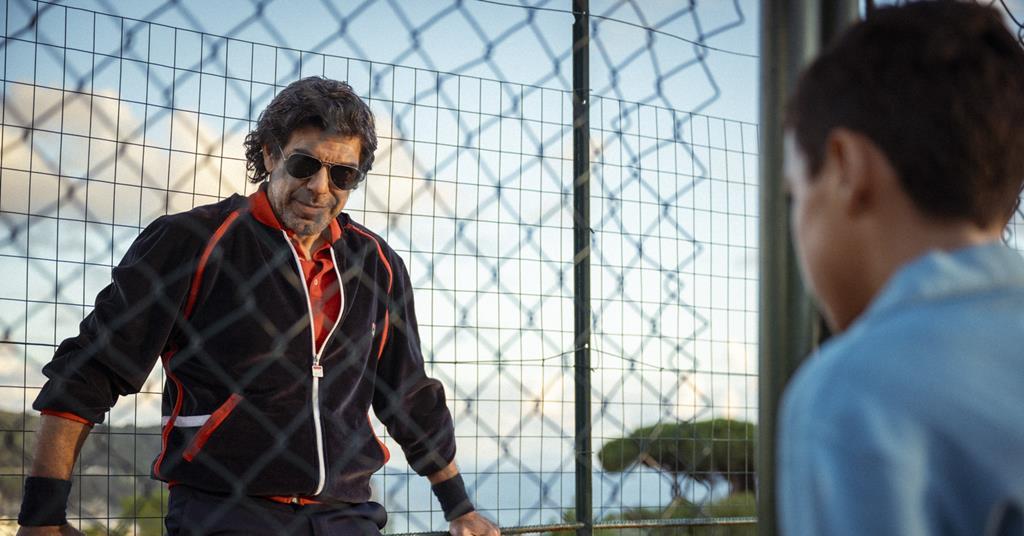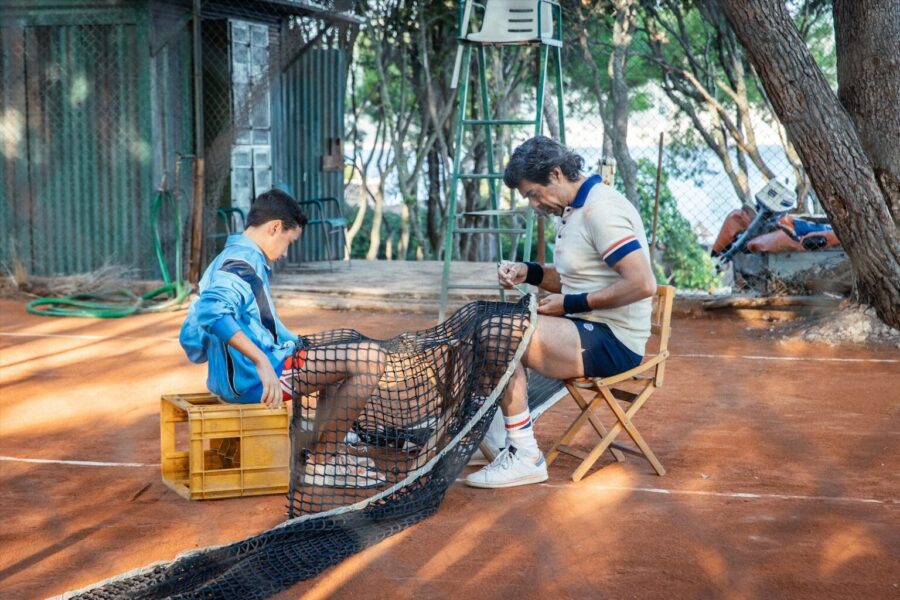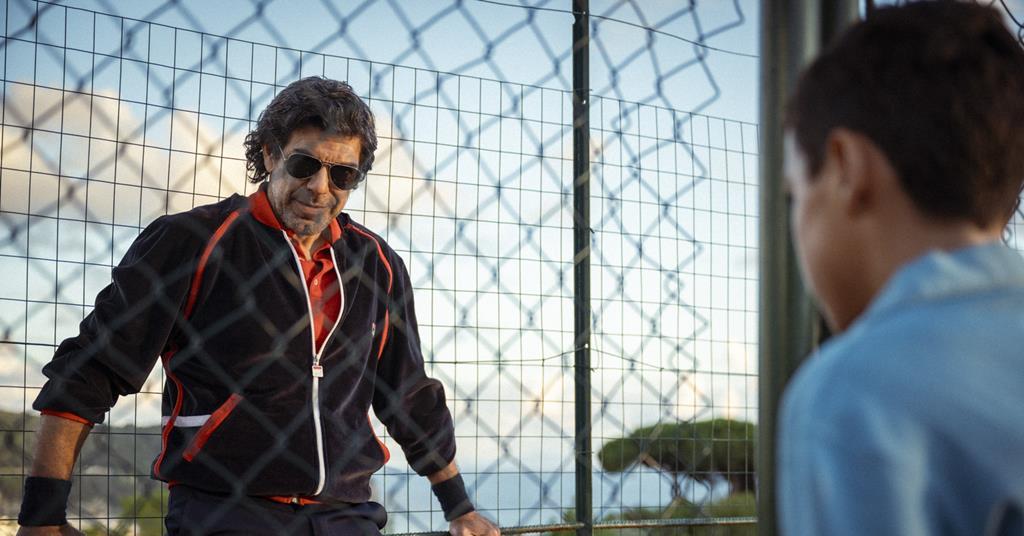
Pierfrancesco Favino plays a former tennis star who begins coaching a young prodigy in this Italian dramedy premiering at the Venice Film Festival.
Italian tennis is living what might be the best moment in its history. Not only do they have the world’s No. 1 player (Jannik Sinner), but also nine players in the Top 100—most of them young and promising—along with a renewed public interest in the “white sport.” That revival has found its way to cinema as well. Last year Luca Guadagnino released Challengers, a U.S. production about tennis that, despite its setting, carried more than a hint of Italian exuberance. Now comes Il maestro, another film that uses tennis as its central axis and, in some ways, as an excuse to tell a double coming-of-age story: that of a young player and that of his coach.
The great Pierfrancesco Favino (The Traitor, Nostalgia) plays Raul Gatti, nicknamed “The Cat,” a once-famous tennis player who, in the late ’80s, is trying to return to the sport as a coach. It quickly becomes clear that Gatti has just come out of a psychiatric clinic, is medicated, has no real teaching experience, and has led a chaotic life since retiring from professional tennis. Still, determined to straighten himself out, and banking on his past celebrity, he manages to land his first job.
In parallel we meet Felice (Tiziano Menichelli), a 13-year-old talent trained under the strict hand of his obsessive father, who dictates every aspect of his training, playing style, and daily routine. After winning a regional tournament, Felice qualifies for nationals, but since his father can’t accompany him on the tour, he invests the family’s savings (canceling their vacation, much to the irritation of his wife and daughter) to hire Gatti. He assumes that under the guidance of a former professional, Felice will make the leap forward everyone expects.

What he doesn’t know is that Gatti has little clue what to do, and even less inclination to actually train the boy. He’d rather meet women, go out for drinks, have fun, and wander around—sometimes even dozing off during Felice’s matches. For the young player, this is a major crisis: used to a tense but symbiotic relationship with his father, he suddenly finds himself with a coach whose only advice is “attack!” and little else. At best, Gatti offers anecdotes about his idol, the great Argentine Guillermo Vilas, who—according to him—would party all night and still beat anyone the next day.
My Tennis Maestro follows the evolution of their relationship throughout a chaotic, adventure-filled tour. While the results on court are not what Felice hopes for, the experience of being on the road together changes both of them. The film is, in its own way, about mutual growth: Felice begins to approach adolescence and his future with a little more freedom and enjoyment (the metaphor on court is learning to attack rather than just return balls, the defensive style instilled by his father), while Gatti is forced to reckon with the mistakes that have haunted his life.
Though the film runs about 20 minutes too long and adds a few unnecessary twists, Di Stefano delivers an enjoyable, gently old-fashioned dramedy about two very different people forced to coexist on the road. Favino brings layers of depth to his role, shaping a man who desperately wants to do right but can’t help stumbling into missteps, for reasons both personal and circumstantial. And as in tennis, mistakes can cost you points, even sets—but what matters is winning the last point. By that measure, the film, without flair but with persistence, does exactly that.


